Clients must be between the ages of twelve (12) and seventeen (17) to participate in the Pre-Charge Diversion Program offered through Restorative Justice Chatham-Kent. This ‘alternative measures’ program is funded by the Ministry of Children & Youth Services and is delivered in conjunction with the Chatham Kent Police Service, as they diligently screen and refer the appropriate youth cases to our agency.
For Police to consider sending a youth to the Pre-Charge Diversion Program, typically the youth must be a first-time offender/have limited police contact in past, be remorseful, cooperative, accept responsibility for their role in the alleged crime, and voluntarily agree to participate in such a program. Also, the alleged crime must be ‘minor’ in nature to be considered for Pre-Charge Diversion – known as a ‘summary offence’ under Canada’s Youth Criminal Justice Act.
Examples: shoplifting (theft and possession under $5000), mischief/vandalism (under $5000), minor assault, or possession (minor amount) of ‘controlled substances’ contrary to Canada’s Controlled Drug and Substances Act (CDSA).
How Does it Work?
- When RJCK receives a referral for a case that would benefit from Pre-Charge Diversion, the agency makes contact with the offender, then victim(s) to determine eligibility and willingness to participate in a conference.
- Following assessment of offender, and pre-conference meetings with all involved parties, a conference is held in a private, neutral space.
Included in conference: the victim, the youth offender, each of their respective supporters/ family members/ guardians, trained community volunteers, conference facilitator, as well as any other relevant representatives (police officer involved, teacher, etcetera). - Each person will have an opportunity to express how he or she has been affected by the incident. The youth will have a chance to express remorse for his/her actions, and offer an apology to those he/she has harmed, their family, and the community-at-large, as represented by the community volunteers.
- After input from all individuals present, the group decides on how best to resolve the issue in a proportionate and fair way…in order to best repair the harm done both to the victim, and the community.
- To this end, a customized Conference Agreement is discussed, drafted, and signed by all parties present to achieve this end; some form of restitution may be included, and/or community service hours, letters of apology, further educational programming, a charitable donation, a research project/poster, or drug testing…to name a few examples.
- Youth are responsible for completing terms of agreement by set deadlines; upon completion of all terms, RJCK sends a final report to the Youth Officer with Chatham-Kent Police Service, and the process of clearing the youth’s record begins at this time.
- Follow-up is initiated by RJCK at the 6- and 12-month point following completion of the file, to determine overall “success” of the program (in reducing criminal and/or delinquent and negative behaviours).



